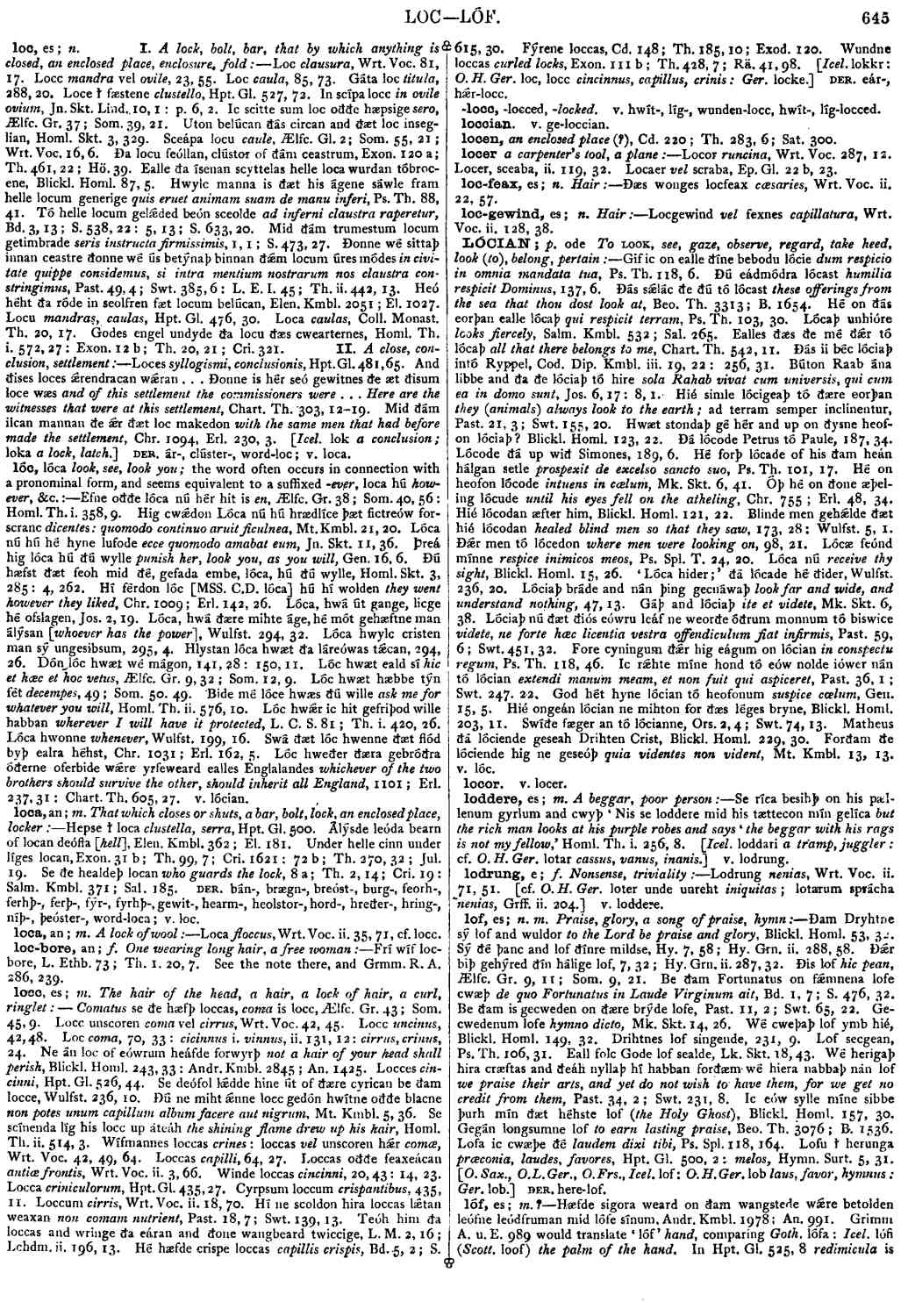lof
- noun [ neuter ]
-
Ðam Dryhtne sý lof and wuldor
to the Lord be praise and glory,
- Blickl. Homl. 53, 32 .
-
Sý ðé þanc and lof ðínre mildse,
- Hy. 7, 58 ;
- Hy. Grn. ii. 288, 58 .
-
Ðǽr biþ gehýred ðín hálige lof,
- 7, 32 ;
- Hy. Grn. ii. 287, 32 .
-
Ðis lof
hic pean,
- Ælfc. Gr. 9, 11 ;
- Som. 9, 21 .
-
Be ðam Fortunatus on fǽmnena lofe cwæþ
de quo Fortunatus in Laude Virginum ait,
- Bd. 1, 7 ;
- S. 476, 32 .
-
Be ðam is gecweden on ðære brýde lofe,
- Past. 11, 2 ;
- Swt. 65, 22 .
-
Gecwedenum lofe
hymno dicto,
- Mk. Skt. 14, 26 .
-
Wé cweþaþ lof ymb hié,
- Blickl. Homl. 149, 32 .
-
Drihtnes lof singende,
- 231, 9 .
-
Lof secgean,
- Ps. Th. 106, 31 .
-
Eall folc Gode lof sealde,
- Lk. Skt. 18, 43 .
-
Wé herigaþ hira cræftas and ðeáh nyllaþ hí habban forðæm wé hiera nabbaþ nán lof
we praise their arts, and yet do not wish to have them, for we get no credit from them,
- Past. 34, 2 ;
- Swt. 231, 8 .
-
Ic eów sylle míne sibbe þurh mín ðæt héhste lof
(the Holy Ghost),
- Blickl, Homl. 157. 30 .
-
Gegán longsumne lof
to earn lasting praise,
- Beo. Th. 3076 ;
- B. 1536.
-
Lofa ic cwæþe ðé
laudem dixi tibi,
- Ps. Spl. 118, 164 .
-
Lofu ł herunga
præconia, laudes, favores,
- Hpt. Gl. 500, 2 :
melos,
- Hymn. Surt. 5, 31 .
Bosworth, Joseph. “lof.” In An Anglo-Saxon Dictionary Online, edited by Thomas Northcote Toller, Christ Sean, and Ondřej Tichy. Prague: Faculty of Arts, Charles University, 2014. https://bosworthtoller.com/21816.
Checked: 1